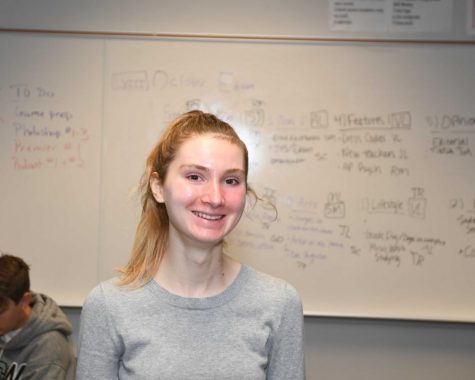Tracking apps potentially infringe on boundaries and privacy
Location apps such as Find My Friends, Snapchat maps, and family locator apps have become increasingly popular among smartphone users, often utilized by parents to keep track of their child’s location or by groups of friends. While location tracking is marketed as a safety precaution, many see location trackers as invasive and argue they can easily be exploited to control students’ lives by their parents and peers, creating a need for boundaries surrounding location apps’ usage.
The ability of smartphones to track their users’ location at all times has always carried concerns about privacy. Previously, most concerns were strictly legal; until a 2018 Supreme Court ruling, law enforcement was able to access location data from a smartphone user’s wireless carrier without a warrant. However, as location tracking becomes commercialized and accessible to the general populace, social concerns also arise about how and when voluntary location “sharing” between two parties is permissible.
For parents anxious about their child’s whereabouts, location sharing offers a convenient method of alleviating their concern and enforcing any rules about “off-limits” zones for their children.
On the other hand, for students who do have to share their location, they may feel limited in their freedom to travel, fearing punishment and judgment from their parents. Constant location sharing also negates any need for parents to develop a sense of trust in their child, which can create a barrier in students’ relationships with their parents.
“Whenever [my parents] wonder where I am, they check my location,” freshman Chris Jeong said. “I’m usually not doing anything bad, but the fact that they check my location rather than just asking where I am makes me feel like they don’t necessarily trust me.”
Despite location services’ potential for abuse, having a mutual understanding between parent and child about when using location services is acceptable—for instance, restricting their usage to times when the child isn’t responding to other methods of communication, such as a phone call or text—can help to alleviate any negative effects on parent-student relationships.
“I actually suggested that [my parents and I] share our location with each other because I wanted to know where they were… just for convenience when they used to pick me up and stuff,” junior Danny Murphy said. “90% of the time, they don’t check my location, and I know they trust me when I tell them where I’m going.”
Beyond creating difficult dynamics between parents and children, location apps also have the potential to strain relationships between students, as having a mutually shared location gives students an unprecedented ability to access their friends at all times.
“Some of my friends are creeped out when they realize that they share their location with me and they forgot that they had done that,” Murphy said. “But it’s really nice… [because] I know when my friends are home, so if I’m looking for people to hang out with, I can sadly scroll through Find My Friends and see who’s at home.”
Some location sharing services, particularly Snapchat maps, enable the user of the app to track all of their friends locations simultaneously, which may create additional social pressure and tension.
“If you see a bunch of people in the same place and you don’t know why they’re there, then you might think that there’s some party that you’re not invited to, whereas before [location sharing] you would have just not known about the party,” junior Dominic De Bettencourt said.
Though they often straddle the line between convenience and invasiveness, for many students, location sharing services are a natural progression in the increasing access that smartphones and other forms of social media offer into other people’s’ lives. Location sharing is voluntary, so the responsibility lies in students to determine under what situations and with who they are comfortable sharing their location, and to engage in conversations to address any discomfort they feel with location sharing.

Shawna Muckle, 17, is a senior at Jesuit High School. She has been a member of the Chronicle staff for three years in various capacities, and she is currently one of its chief editors. Shawna is fascinated by politics and government, and she enjoys writing articles for the Chronicle pertaining to local and national political developments, alongside issues tied to social justice and personal identity. Some of her favorite pieces she’s written include a feature on Jesuit students’ experience with microaggressions, a recap of the 2018 midterm elections, and an article discussing last year’s clerical abuse scandal within the Catholic Church. Outside of journalism, Shawna is the leader of Jesuit’s Model United Nations club and a member of her school’s Ethics Bowl team, which was a 2019 national champion. Shawna is also a Precinct Committee Person for the Washington County Democrats. In her free time, Shawna can be found aggressively running up hills, drinking boba, and yeeting off on road trips to Seattle (for unspecified reasons). Ask her about her opinions on Congress, specifically a) Republicans and b) the crisis with the federal deficit. In the future, Shawna hopes to pursue journalism in college and, later on, as a congressional reporter in DC.


